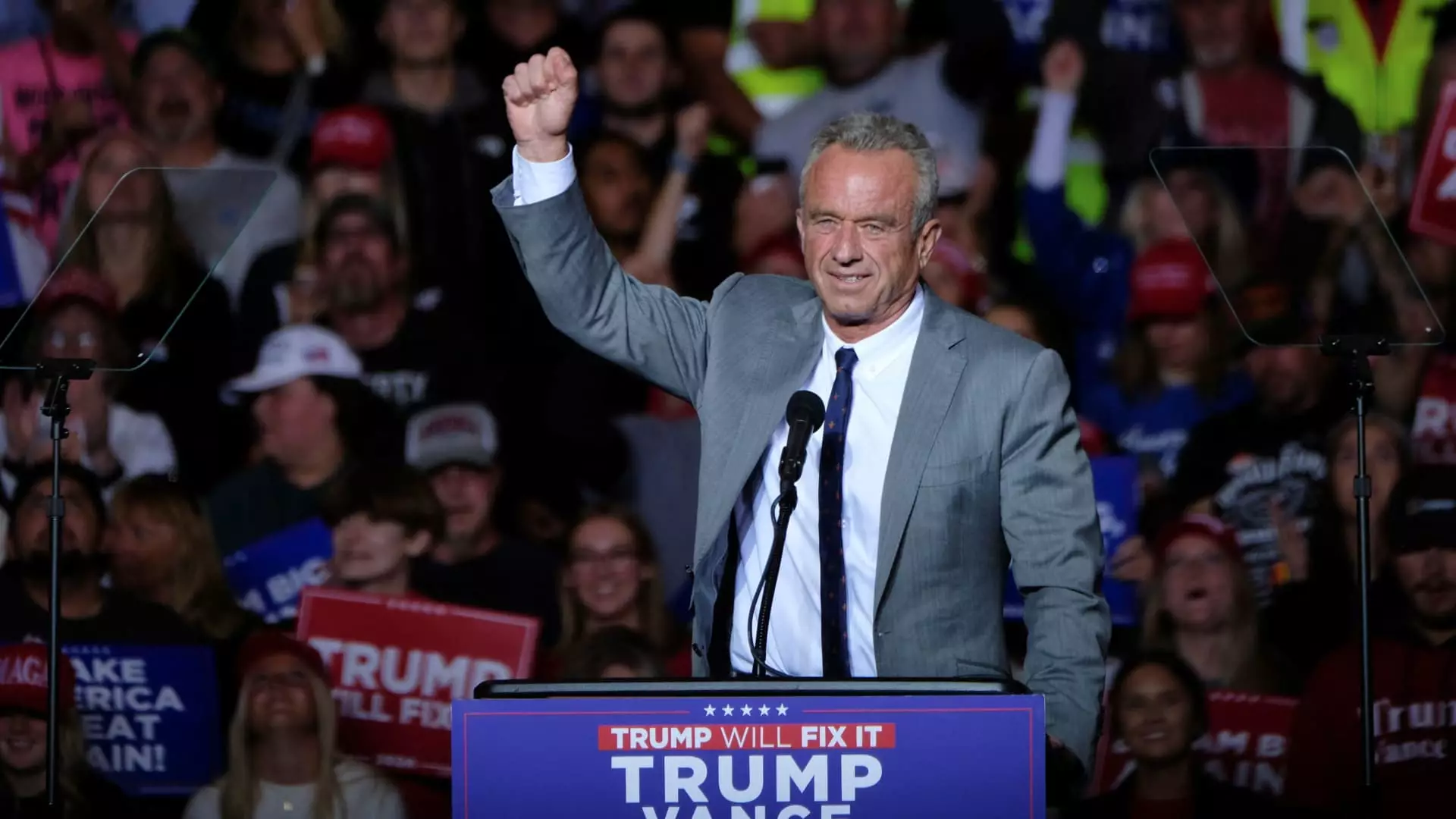In a surprising upturn during Monday’s trading session, shares of Henry Schein, a prominent supplier of dental care products, surged nearly 5%, marking one of its best performance days since July. The catalyst for this movement appears linked to impending policy shifts anticipated under the potential leadership of Robert F. Kennedy Jr. as the Health and Human Services Secretary, a nomination made by President-elect Donald Trump. The prospect that fluoride may be removed from U.S. drinking water has created a palpable sense of optimism among investors, suggesting a subsequent increase in dental visits and a potential boom for dental care providers.
Fluoride has been a contentious subject in dental health discussions for decades. It is widely recognized for its role in combating cavities, yet opponents argue that its presence in public water systems can lead to adverse health effects. Communities across the U.S. have begun to withdraw from fluoridation programs, creating a patchwork of public health policies regarding this mineral. Kennedy has repeatedly expressed his stance against fluoridation, claiming it violates individual rights and health choices. This contentious backdrop has positioned Kennedy’s nomination as a focal point for market speculation.
The possible removal of fluoride from public drinking water systems is perceived as an opportunity for businesses involved in dental hygiene products. According to Gordon Haskett research, if consumers are unable to rely on fluoridated water for cavity prevention, there could be an increase in demand for dental visits and related products. Investors are clearly harnessing this anticipation, with Henry Schein, along with other dental corporations like Dentsply Sirona and Envista, benefiting from this prospective shift.
Kennedy’s nomination and the speculation surrounding it have ignited investor interest in dental stocks, which have managed to outperform many other health-centric equities amid broader market pressures. The healthcare sector reflected volatility recently, with the Health Care Select Sector SPDR Fund (XLV) dipping roughly 3.5% in November, while the general S&P 500 saw an increase of over 3%. This divergence showcases the unique position of dental care related investments, particularly in a climate where uncertainty prevails.
Don Bilson, the head of event-driven research at Gordon Haskett, characterized dental stocks as “spared” by the widespread market sell-off following Kennedy’s nomination announcement. With pharmaceutical companies facing turbulence due to Kennedy’s vaccine skepticism and concerns surrounding increased scrutiny on processed food industries, dental care providers seem to remain somewhat insulated from these immediate pressures.
Despite the surge in share prices, analysts are cautious about the long-term effects of a policy change regarding fluoride. Many believe that even if Kennedy’s policies are adopted, significant regulatory changes will take years to implement. The oversight of drinking water standards predominantly falls under the jurisdiction of the Environmental Protection Agency (EPA), complicating immediate transitions. Moreover, Kennedy’s ascent to a leading role would require Senate confirmation, introducing further uncertainty into how quickly these dual regulatory perspectives could evolve.
Many stakeholders remain attentive to the fact that changes in public health policy can take considerable time to manifest, and the real effects on dental care demand might follow only after a gradual shift in public perception and behaviors surrounding dental hygiene.
As policymakers consider the implications of fluoride regulation, the opportunity for dental care companies could represent a transformative phase in the industry. Stakeholders must stay vigilant in navigating potential changes while simultaneously preparing to capitalize on shifts in consumer behavior – inevitably linked to the broader legislative environment. If fluoride were to be removed from water systems, Henry Schein and its counterparts may find themselves at the front of a surge in dental appointments and an increased appetite for dental products. However, as the health landscape evolves under new leadership, the journey forward will require both strategic foresight and adaptability by companies within this sector.

